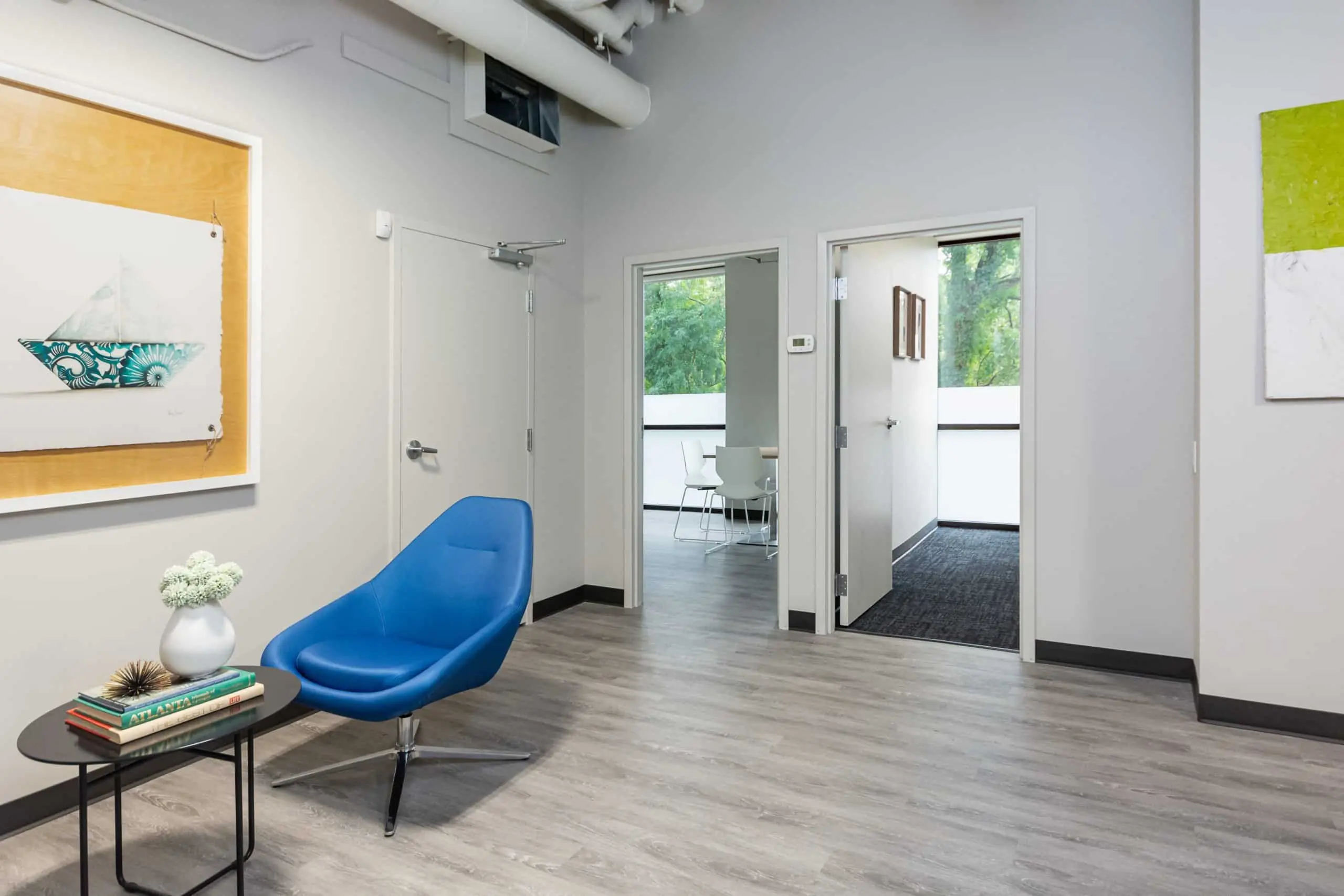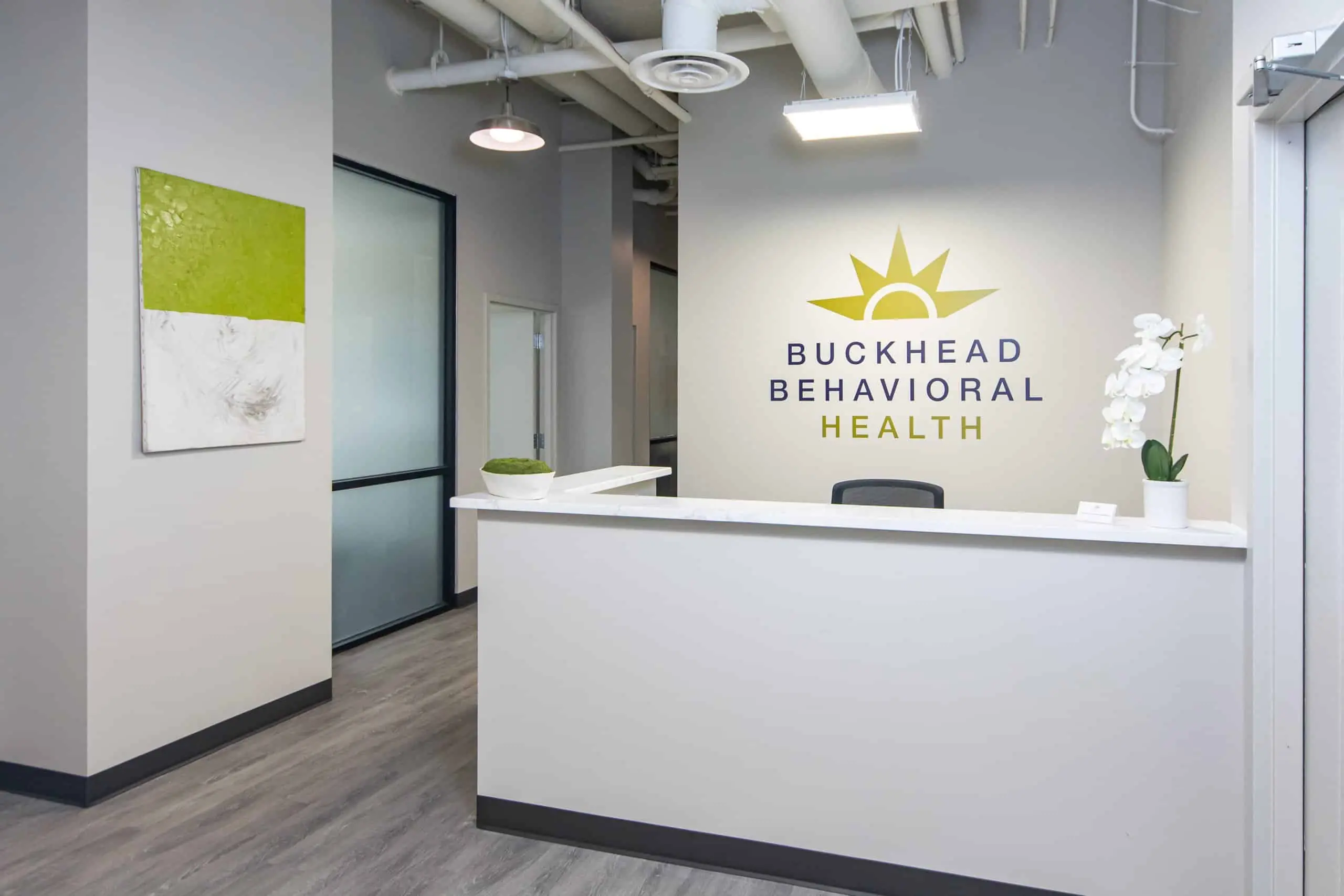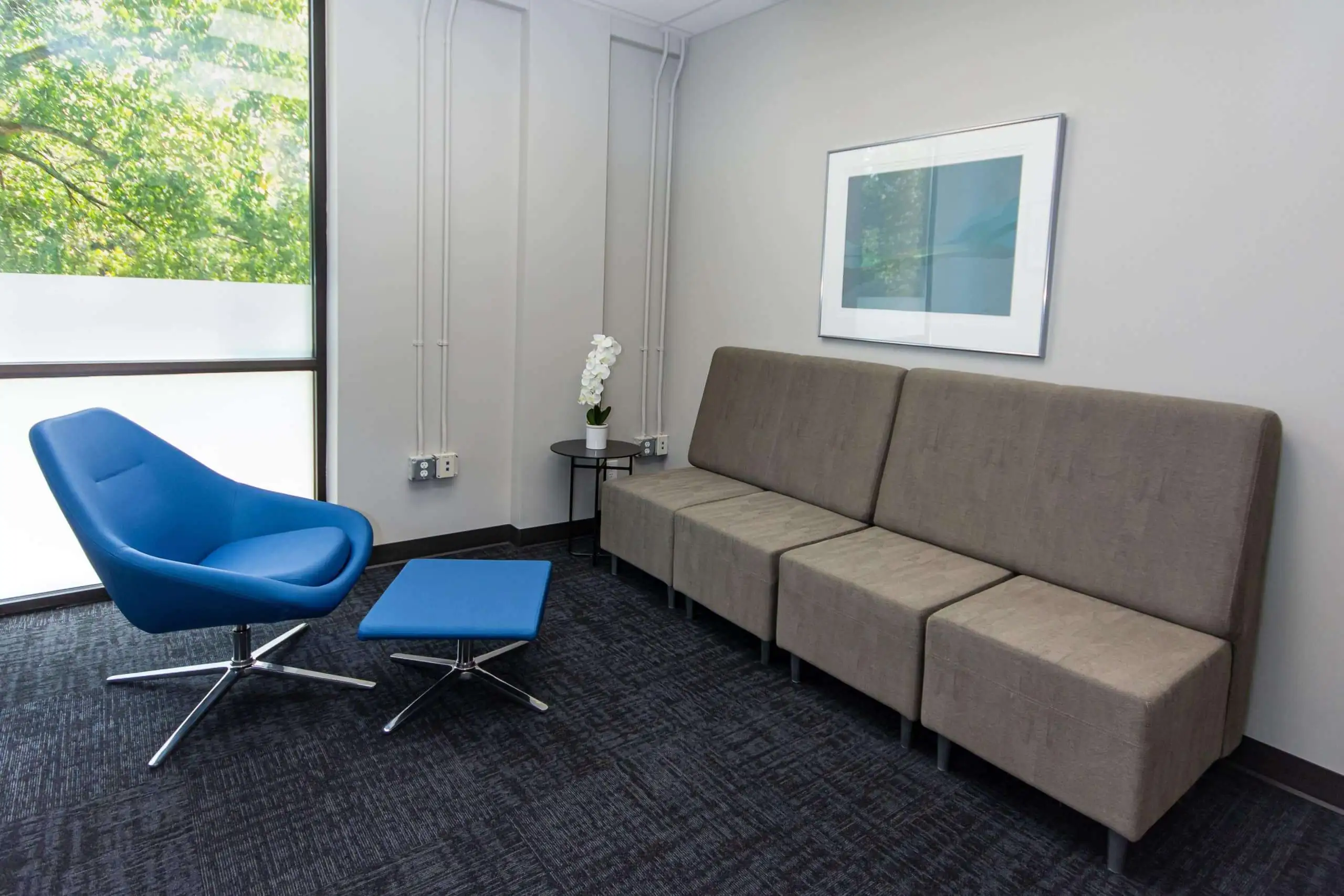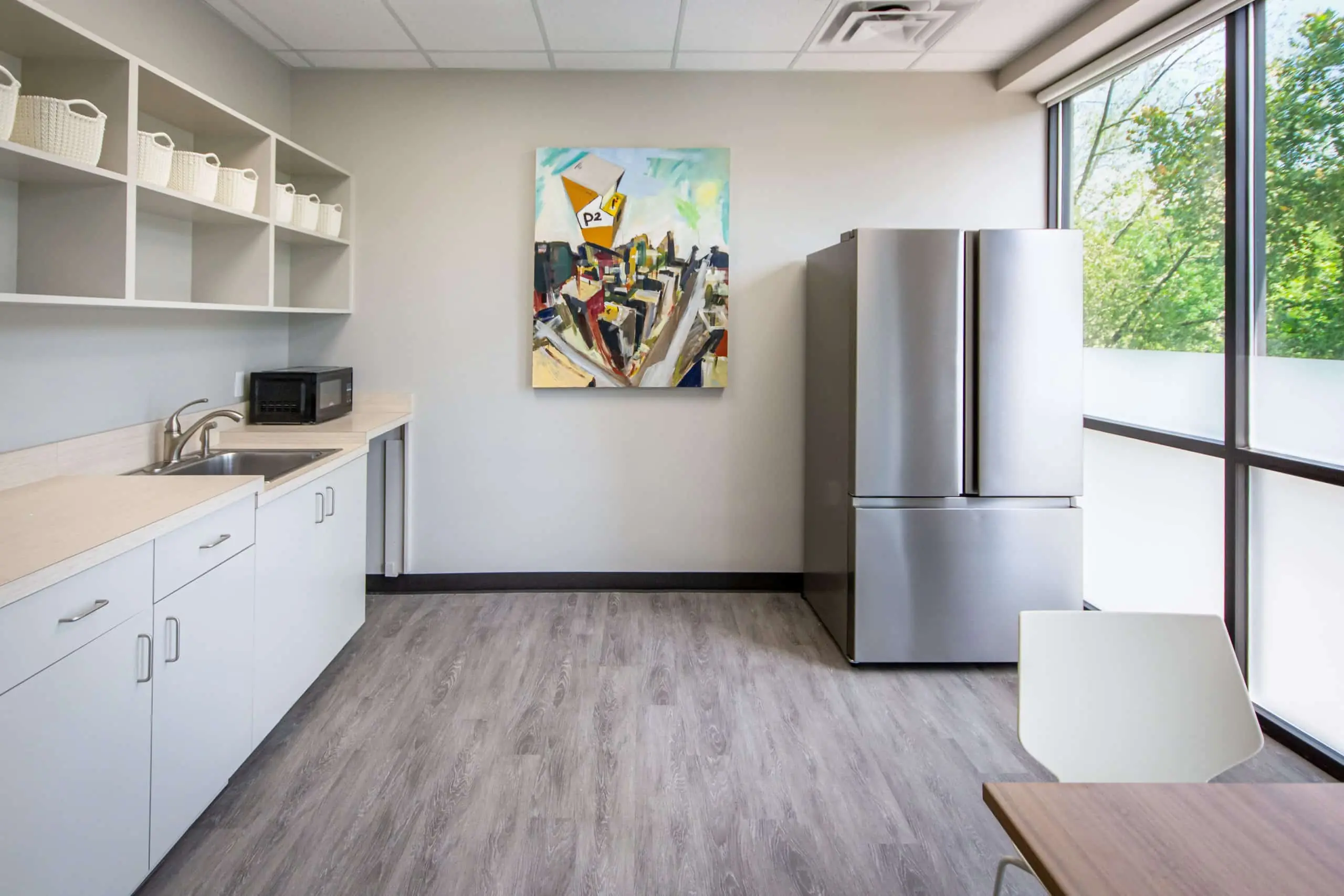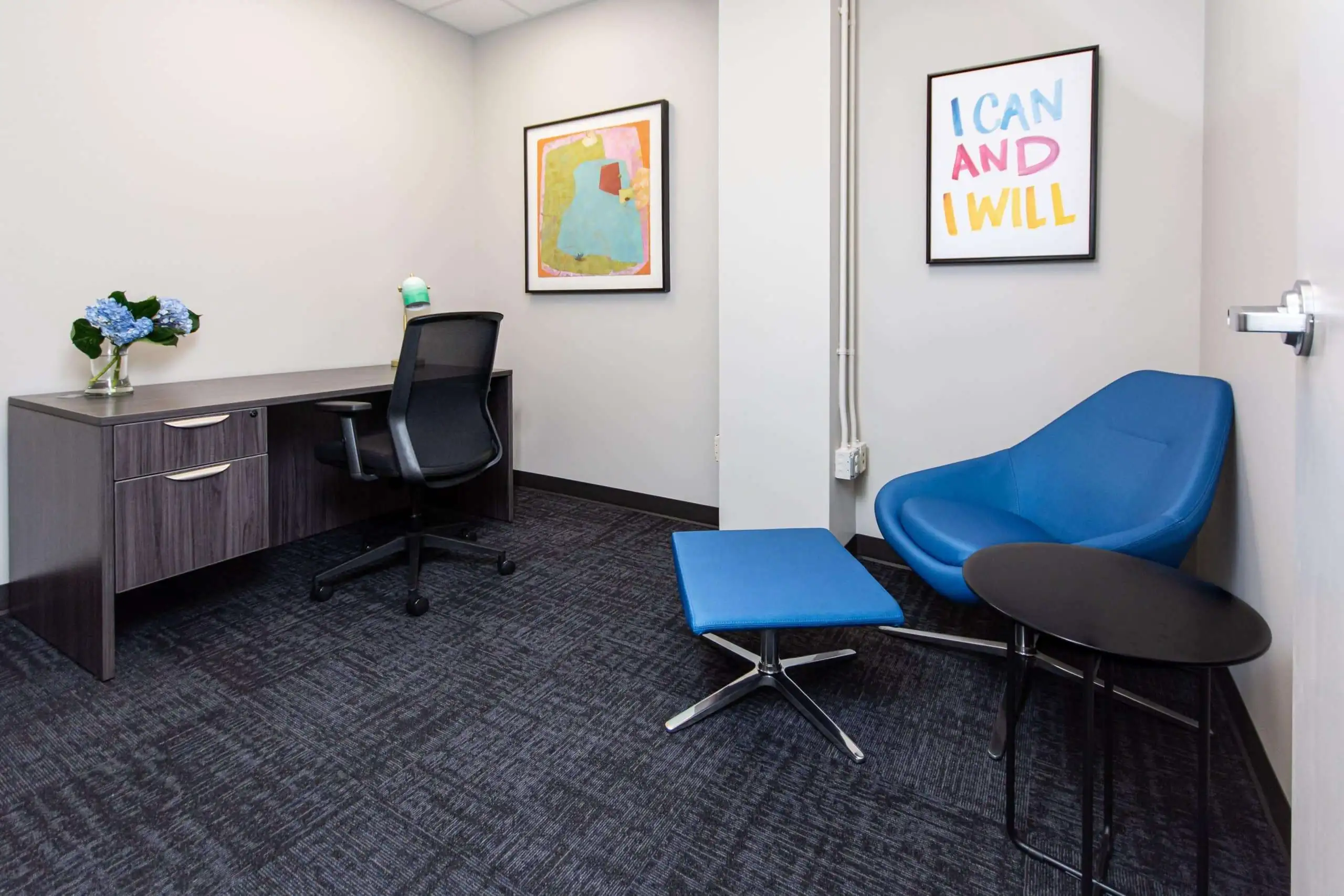Obsessive-Compulsive Disorder (OCD) is often misunderstood, leading many people to suffer in silence. This anxiety-related condition involves intrusive thoughts (obsessions) and repetitive behaviors or mental acts (compulsions) that temporarily reduce distress but ultimately disrupt daily life. At Buckhead Behavioral Health, our OCD treatment in Atlanta helps clients gain insight into their symptoms, develop healthier coping strategies, and reclaim a sense of calm and confidence.
Learn more about our Atlanta mental health programs or call us now at 470-460-6962.
Understanding Obsessive-Compulsive Disorder (OCD)
According to the National Institute of Mental Health (NIMH), “Lifetime prevalence of OCD among U.S. adults was 2.3%.”
OCD is more than occasional worries or perfectionistic habits. OCD is a type of anxiety disorder that triggers persistent, distressing thoughts (obsessions) and overwhelming urges to perform certain behaviors or rituals (compulsions).
Obsessions: Intrusive, Unwanted Thoughts
- Harm or Violence: Fear of losing control and harming self or others.
- Contamination: Excessive worry about germs, dirt, or illness.
- Sex or Religion: Distressing, taboo, or blasphemous thoughts.
- Public Outbursts: Fear of embarrassing behavior or actions in public.
Compulsions: Actions That Temporarily Reduce Distress
- Physical Behaviors: Excessive handwashing, cleaning, or checking locks.
- Mental Acts: Repetitive counting, reciting words silently, or other rituals.
- Repetitive Gestures: Need to touch objects in a certain order.
- Arrangements: Organizing items “just so” to relieve anxiety.
While individuals with OCD may recognize their obsessions and compulsions are irrational, they find it extremely difficult to stop without professional guidance.
Barriers to Seeking OCD Treatment
Many people with OCD delay treatment due to shame, stigma, or confusion over their symptoms. Key challenges include:
- Embarrassment: Obsessions often revolve around taboo or distressing topics, discouraging people from sharing.
- Misconceptions: Friends and family may dismiss behaviors as quirks, not recognizing the underlying anxiety disorder.
- Worsening Symptoms: Attempts to suppress obsessive thoughts can paradoxically intensify them.
Recognizing that OCD is a legitimate mental health condition—and not a character flaw—is the first step to achieving relief.
How OCD is Treated in Atlanta
Psychotherapy for OCD
The cornerstone of OCD treatment is talk therapy, where clients can explore their thought patterns, anxieties, and coping mechanisms. Two primary approaches are:
- Cognitive-Behavioral Therapy (CBT)
- Challenges irrational beliefs and identifies how thoughts influence emotions and behaviors.
- Encourages skill-building to manage daily triggers and stressors.
- Exposure and Response Prevention (ERP)
- A specialized form of CBT considered the gold standard for OCD.
- Systematically exposes clients to their anxiety triggers (obsessions) and prevents compulsive responses, gradually reducing the disorder’s intensity.
Psychiatric Medications
OCD frequently coexists with anxiety and depression, making psychiatric medication an essential component of treatment. Commonly prescribed are selective serotonin reuptake inhibitors (SSRIs)—traditionally used for depression but proven effective for OCD as well:
- Luvox (Fluvoxamine)
- Zoloft (Sertraline)
- Celexa (Citalopram)
- Lexapro (Escitalopram)
- Prozac (Fluoxetine)
- Paxil (Paroxetine)
- Anafranil (Clomipramine)
- Effexor (Venlafaxine)
SSRIs can reduce OCD symptoms by 40-50% according to the International OCD Foundation, especially when combined with behavioral therapy.
Holistic Approaches
Alongside therapy and medication, holistic treatments can further ease anxiety and enhance well-being:
- Red Light Therapy: May support mood regulation by boosting serotonin levels.
- Mindfulness & Meditation: Equips clients to observe intrusive thoughts non-judgmentally, rather than suppress or fight them.
- Lifestyle Adjustments: Incorporating exercise, nutrition, and relaxation techniques to stabilize mood.
Determining the Need for OCD Treatment
When obsessive thoughts and compulsive behaviors interfere with quality of life, it’s time to seek professional help. Signs include:
- Excessive Reassurance-Seeking: Constantly doubting decisions.
- Avoiding Social Settings to hide rituals or obsessions.
- Increased Time Spent on compulsions, impacting work or relationships.
- High Anxiety & Depression stemming from relentless intrusive thoughts.
- Use of Substances to self-medicate for OCD.
- Isolation and missing important events.
OCD Treatment Options in Atlanta
At Buckhead Behavioral Health, we offer a stepped approach to OCD care, providing a continuum of treatment intensity:
- Partial Hospitalization Program (PHP)
- 7-hour daily sessions, 6 days a week.
- Intensive group and individual therapy sessions.
- Ideal for individuals needing a high level of structure without 24/7 residential care.
- Intensive Outpatient Program (IOP)
- Fewer hours per day or week than PHP, but still robust therapy.
- A balance of clinical support and personal responsibilities.
- Helps clients gradually integrate back into routine life.
- Outpatient Program (OP)
- Typically involves weekly or bi-weekly therapy sessions.
- Suitable for managing milder symptoms or as a transition from higher levels of care.
- Allows clients to address any symptom recurrence before it escalates.
- Dual-Diagnosis
- Treats co-occurring substance abuse and OCD simultaneously.
- Essential if clients have turned to drugs or alcohol to cope with intrusive thoughts.
OCD and Dual-Diagnosis
Research published in JAMA Network Open found that individuals with OCD have a 3.7-fold elevated risk of substance misuse. This highlights the strong link between OCD and addiction, where each condition can exacerbate the other. By tackling both conditions in an integrated approach, we help clients achieve lasting recovery in both spheres.
Want to Learn more about Buckhead Behavioral Health?
Start Your Recovery from OCD
Obsessive-compulsive disorder can feel overpowering, affecting every aspect of daily life—from self-esteem to relationships and work performance. Yet with a thorough, multi-layered approach—comprising therapy, medication, and holistic care—long-term relief is genuinely possible. At Buckhead Behavioral Health, our comprehensive OCD treatment in Atlanta is designed to help you or a loved one break free from relentless thoughts and reclaim a calmer, more fulfilling life.
Take the First Step Today
- Call us at (470) 460-6789 to speak with an admissions specialist.
- Verify Your Insurance to explore coverage for your treatment.
- Begin a personalized treatment plan to manage OCD and live confidently.
You don’t have to battle obsessive thoughts and compulsive behaviors alone. Contact Buckhead Behavioral Health and regain control over your life through compassion, expertise, and a proven path toward wellness.
